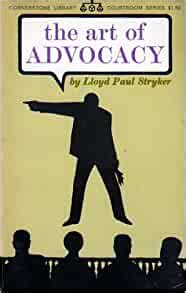A Quote by Ludwig von Mises
In a battle between force and an idea, the latter always prevails.
Related Quotes
The difference between a man who faces death for the sake of an idea and an imitator who goes in search of martyrdom is that whilst the former expresses his idea most fully in death it is the strange feeling of bitterness which comes from failure that the latter really enjoys; the former rejoices in his victory, the latter in his suffering.
And Tempus thought then that nothing was more worthwhile than what was growing in this whitewashed barracks, where he has come to build a force such as men or gods have never seen - a force worth reckoning with, if you were of a mind. And something was of that mind. And something else opposed it. He should have expected that. Battle in the heavens, battle on the earth.
The progress of science has always been the result of a close interplay between our concepts of the universe and our observations on nature. The former can only evolve out of the latter and yet the latter is also conditioned greatly by the former. Thus in our exploration of nature, the interplay between our concepts and our observations may sometimes lead to totally unexpected aspects among already familiar phenomena.
We are involved in an intense battle. It is a battle between right and wrong, between truth and error, between the design of the Almighty on the one hand and that of Lucifer on the other. For that reason, we desperately need moral men and women who stand on principle, to be involved in the political process. Otherwise, we abdicate power to those whose designs are almost entirely selfish.
In every well-written play the battle rages between the primary powers of Good and Evil, and it is this battle which constitutes the life impulse of the play, its driving force, and is basic to all plot structures...In any true piece of art...the beginning and the end are, or should be, polar in principle. All the main qualities of the first section should transform themselves into their opposites in the last section.
The whole analogy of natural operations furnishes so complete and crushing an argument against the intervention of any but what are termed secondary causes, in the production of all the phenomena of the universe; that, in view of the intimate relations between Man and the rest of the living world; and between the forces exerted by the latter and all other forces, I can see no excuse for doubting that all are co-ordinated terms of Nature's great progression, from the formless to the formed from the inorganic to the organic from blind force to conscious intellect and will.




































